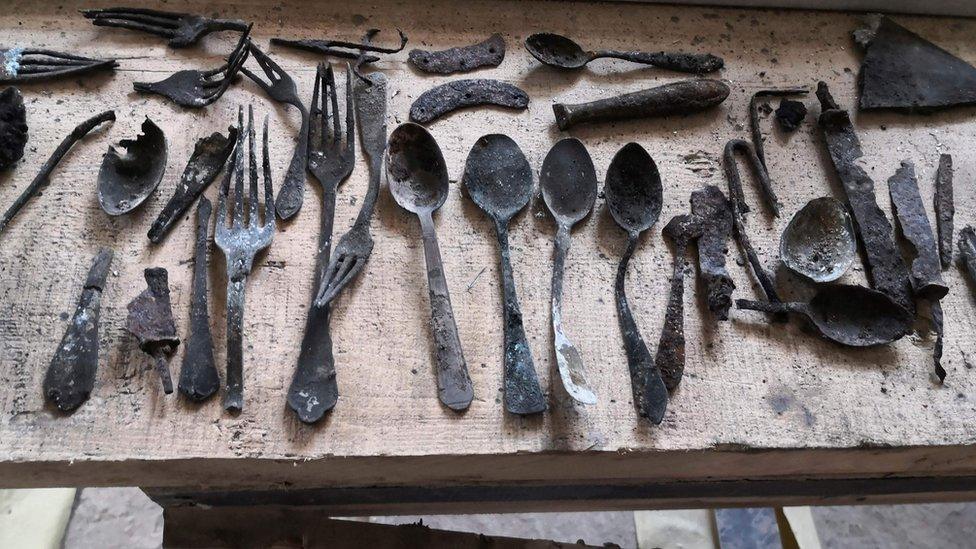Auschwitz: Hidden objects found at concentration camp
- Published

Prisoners seem to have hidden dozens of items, including cutlery, scissors and scraps of leather
A number of objects have been found hidden beneath a chimney at the Auschwitz concentration camp complex.
Knives, forks, scissors and tools were among the objects discovered in Block 17, which is thought to have housed prisoners with handicraft skills.
It is unclear why prisoners would have hidden the items at the site.
Auschwitz, a Nazi death camp in occupied southern Poland during World War Two, was the epicentre of the genocide against Europe's Jews.
In just over four-and-a-half years, Nazi Germany systematically murdered at least 1.1 million people there, almost one million of whom were Jewish.
Most were murdered at Auschwitz II-Birkenau, the site of the huge gas chambers.
Polish civilians, Soviet prisoners of war, Roma, Sinti, Jehovah's Witnesses, homosexuals and political prisoners were also killed at the complex.
Austria's National Fund for Victims of National Socialism has been renovating Block 17, situated on the main camp, for an upcoming exhibition.
Workers exposed a chimney flue in April and found the objects inside. They recovered and documented each one before handing them over to the Auschwitz Museum.
Work at the site was reduced due to the ongoing coronavirus outbreak
Why the prisoners would hide the items remains uncertain. But says that possible reasons could include "making and repairing clothes, locksmithing or to prepare for an escape" - or even for use to barter with other prisoners.
Holocaust survivors and international leaders gathered at Auschwitz in January to mark the 75th anniversary of the liberation of the complex.
By the end of the war in 1945, it had more than 40 camps and subcamps.
Mady Gerrard was 14 when she was taken to Auschwitz concentration camp.
- Published25 January 2020
- Published5 May 2016